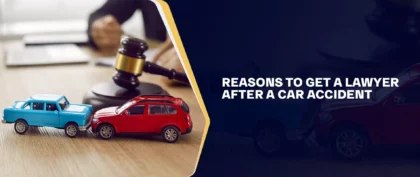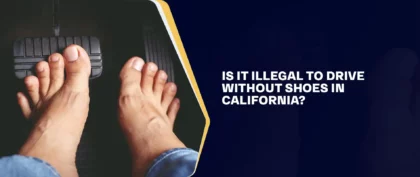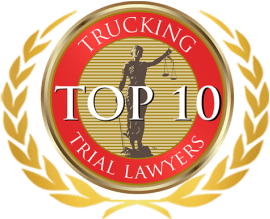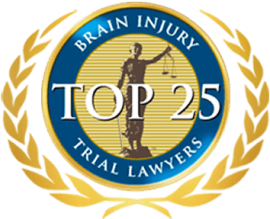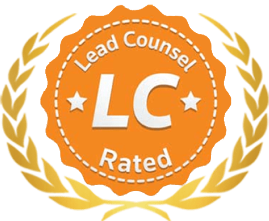Table of Contents
A Californian’s Legal Guide for Pregnant Women Suffering from Car Accident Injuries with Shocking Statistics, Tips for Staying Safe While Driving, Proper Seatbelt-Use, Plus Common Birth Defects and The Compensation They Merit.
Accidents do not discriminate! An automobile accident can happen to anyone, anywhere, at any time and in the blink of an eye. In some cases, the accident could be scarier than others. It might be that the car accident occurred at high speeds instead of a slow pace fender-bender.
Just as frightening, you might have been hit by a big SUV instead of a smaller electric vehicle. Another factor which might not immediately come to mind, but is of great importance, may include if you are in a vehicle accident and, pregnant or not. An auto accident can be dangerous for anyone.
Pregnant women, however, face even greater risks of injury to themselves and their unborn children when they are involved in a car accident while pregnant. Here are some troubling statistics:
-
- Reuters reports on a study that found that the accident rate for women in their second trimester was nearly double that for women before they became pregnant. Pregnant women were 42% more likely to be involved in a motor vehicle accident that sent them to an emergency room, compared to when they weren’t carrying a child.
- Reuters reports on a study that found that the accident rate for women in their second trimester was nearly double that for women before they became pregnant. Pregnant women were 42% more likely to be involved in a motor vehicle accident that sent them to an emergency room, compared to when they weren’t carrying a child.
-
- Another study published in the Annual Proceedings of the Association for the Advancement of Automotive Medicine estimated that 1500 to 5000 fetal deaths occur every year in the United States as a result of the mother being involved in an auto accident. It is difficult to determine this figure with accuracy. Fetal death is only legally determined and recorded if the mother is at least twenty weeks pregnant. Moreover, between 10 and 20 percent of all early pregnancies end in miscarriage, so it is difficult to determine whether an early miscarriage is due to an auto accident or not. But the fact remains that hundreds – possibly thousands – of pregnancies end every year in America as a result of auto accidents.
-
- This same study examined nine cases in which a pregnant mother was killed in an auto accident. In all nine cases, the baby died as well. Eight of the mothers were not wearing a seatbelt at the time of their deaths. The researchers concluded that proper seat belt use was the simplest way to protect an unborn child in an auto accident.
When another driver or company is legally responsible for causing auto accident injuries, they also have a legal obligation to compensate the victim for those injuries and even a minor car accident while pregnant can cause serious problems.
Pregnant women often have far more expenses than other auto accident victims, largely due to increased medical expenses. A pregnant auto accident victim will likely require hours of fetal monitoring. She will have extra medical appointments with her obstetrician and may also have to see other specialists. She will likely also experience increased pain and suffering as a result of her worry over her unborn child. All these factors mean that it takes more to provide adequate car accident pregnant victim compensation,
Of course, insurance companies do not want you to know the fair value of your claim. They do not want you to consider all the different losses you have suffered and how much you are actually entitled to under the law. This is why it is so important for pregnant women to get legal advice after an auto accident. This guide seeks to examine what legal rights women have under California law after a car accident during pregnancy.
The Types of Pregnancy Injuries Women Can Suffer as a Result of a Car Accident
Both you and your baby can suffer injuries as a result of a car crash, and the types of injuries you can suffer depend largely on your accident. For example, if you are read-ended while you are pregnant, your settlement will look much different than if you simply suffered whiplash while pregnant. Here are some of the most common injuries pregnant auto accident victims sustain:
- Premature Birth — Preterm birth occurs when a baby is born before 37 weeks of pregnancy. According to the Centers for Disease Control, preterm births affected one out of every ten infants born in the United States in 2018. 2018 also marked the fourth straight year in which preterm birth rates rose. Studies have found elevated rates of preterm labor among auto accident victims. In some cases, doctors can stop preterm labor with medication and other interventions. In other cases, the baby is born too early (known as a Preemie), and either cannot survive or suffers from permanent disabilities.
- High-Risk Pregnancy — Pregnancies are labeled “high risk” when there are complications with either the mother or the baby that need careful monitoring and observation. According to the National Institute of Child Health and Human Development, there are many reasons a pregnancy could be classified as high-risk. Existing health conditions such as diabetes, high blood pressure, or HIV can complicate pregnancy. Maternal obesity can increase a child’s risk of heart disease by 15 percent as well as increasing the risk of other medical conditions in the unborn child. Multiple births also complicate a pregnancy. Preeclampsia, preterm labor, and preterm births are all commonly associated with multiple babies. Finally, a pregnancy could be designated high risk due to the mother’s age. Pregnancy in women younger than 17 or older than 35 carries known risks. Pregnancy can also be deemed high-risk due to a car accident during pregnancy – such as a car accident. High-risk pregnancies tend to result in greater medical expenses. They can require more doctor’s visits, more medications, more ultrasounds, and more electronic fetal monitoring. They are also very stressful for a mother who is worried about the health of her unborn child. Both the added medical costs and the added stress of a high-risk pregnancy are compensable losses. Mothers are entitled to compensation for these losses if the high-risk pregnancy was caused by a car accident. A preeclampsia accident lawyer in California can help you fight, give us a call at (888) 488-1391.
- Placental Abruption — A placental abruption is a serious condition in which the placenta partially or completely separates from your uterus before your baby is born. This is an uncommon but highly dangerous complication. A study reported in the American Journal of Epidemiology found that the mortality rate for all births was 8.2 out of every 1000, but in cases of placental abruption, the mortality rate was 119 out of every 1000. This is due in part to the strong correlation between placental abruption and early delivery. In fact, more than half of the placental abruption mortality cases studied were found to be due to preterm delivery. Abdominal trauma sustained during a car accident increases a mother’s chances of placental abruption. The placenta is a vascular organ within the uterus that exchanges oxygen, nutrients, and waste between the mother and the fetus. If the placenta detaches from the uterine wall in an abruption, this disrupts the supply of oxygen and nutrients to the fetus. Partial abruptions can also occur. Depending on the degree of placental separation from the uterus, it is possible for a pregnancy to continue successfully even after a partial abruption. This type of pregnancy, however, becomes a high-risk pregnancy that requires careful monitoring and added stress to the mother. A placental abruption accident lawyer can help you, reach out to us to discuss your case.
- Uterine Injury — Because the uterus is enlarged during pregnancy, it is more susceptible to injury. Abdominal injuries sustained in a car crash can cause life-threatening complications to both mother and child. In cases of uterine rupture, the mortality rate for unborn children is near 100 percent. The complications of a rupture also create a risk of death for mothers, who face a 10 percent mortality rate in cases of uterine rupture. Uterine injury can also cause internal bleeding that threatens the life of both mother and child.
- Miscarriage — Can a car accident cause a miscarriage? Unborn babies are protected by the uterus, amniotic fluid, placenta, and other structures of the mother’s abdominal cavity. These structures are designed to protect the child from minor trauma. In the case of minor car accidents, the unborn child is often protected by the mother entirely and suffers no injuries as a result of the collision. Unfortunately, this is not always the case. In serious car accidents, the mother is subjected to very powerful forces, and the baby cannot always withstand the trauma to which he or she is subjected. Some mothers suffer tragic miscarriages as a result of car accidents. In this case, the mother has a legal claim for her losses. In these kinds of cases, pain and suffering is a critical component of personal injury compensation. It takes a skilled auto accident lawyer to fight for – and prove – the value of a mother’s suffering after a miscarriage. Insurance claims adjusters are trained to make simple calculations regarding intangible and non-economic losses. When the pain is as personal as a miscarriage, this is simply not good enough, and you need a lawyer who can fight for just compensation for a car accident while pregnant.
The Types of Injuries an Unborn Baby Can Suffer as a Result of a Car Accident
Fetal Trauma — The authors of a case study reported in Medicine have noted that direct fetal injury is infrequent. Head injuries are the most common when trauma does occur because the head is the largest part of the unborn child. Many cases of fetal direct head injuries have a poor prognosis. The head trauma suffered by an unborn child in a car accident actually mimics that of “shaken baby” syndrome. The child’s brain can rock forward to hit the front of the skull, then back again to hit the back of the skull. These well-documented coups and contrecoup forces have been known to cause serious – and sometimes fatal – brain damage. Luckily, seat belts and airbags have been repeatedly shown to reduce trauma to both mother and baby in a car accident.
Birth Defects — Both direct fetal injuries and premature birth can lead to birth defects, and car accidents can cause both. A study in the Maternal and Child Health Journal found that birth defects were twice as common among preterm births (24 to 36 weeks) as full-term births (37 to 41 weeks). This figure jumped to five times when very preterm births (24 to 31 weeks’ gestation) were compared with full-term births.
Birth defects lead to costly medical procedures and rehabilitative services that may be required for the child’s entire life. The child might need emergency surgery or a lengthy stay in the ICU after he or she is born. Many medical specialists will likely have to be consulted about the child’s various needs. Birth defects often lead to poor developmental outcomes, and this means that many children suffering from birth defects must complete years of physical therapy, occupational therapy, speech therapy, and other types of rehabilitation.
If your child’s birth defects are the result of a car accident, the negligent driver has a legal obligation to pay for all these costs. Your child is also entitled to compensation for his or her pain and suffering, which can be substantial.
Is Wearing a Seatbelt Safe For Pregnant Women To Do?
The question each mom-to-be asks herself when pulling that strap across her body in the vehicle is often; “Are seatbelts truly safe to wear if I’m pregnant?” She might even go as far as asking someone else, like her OB or another healthcare provider. While she hears them say, “Yes!” there remains a lingering concern for her small, unborn baby.
Experts agree that everybody, including pregnant women, should at all times wear a seat belt when riding in a vehicle. Seat-belts are the single most effective means to save lives & lower injuries in accidents. The reality is that yes, as stated in some studies, the mother is 3x safer when wearing a seat belt, whether it is comfortable or not. Additional research shows that the in-utero infant is up to five times more likely to die than a toddler or child restrained in a car-seat in the exact same vehicle. However, if you’re pregnant, then it’s crucial to put on your seat belt correctly.
Seat belt safety suggestions during pregnancy:
- The most secure kind of seat belt to utilize is a lap & shoulder belt combination.
- The lap belt should be put under your stomach, touching your thighs, and low & comfortable on your hip bones.
- Never use the belt over or across your stomach.
- Always use the shoulder belt, which should fit snugly through the middle of your shoulder & chest.
- Make sure the shoulder strap is in between your breasts.
- Make sure the lap-strap is as low as possible throughout your hips and under your belly, so, if it goes over your belly button, it’s too high!
- Never put the shoulder belt under your arm or behind your back.
- If you are driving, be sure you maintain your stomach a protected distance from the airbag. Your breast bone should be at least 10 inches away from the dashboard or steering wheel. You might need to move your chair back as your stomach grows!
Do You Have a Wrongful Death Claim for an Unborn Child Killed in a Car Accident?
Wrongful death claims are created by state law. For this reason, each state’s law varies on the question of whether parents can maintain a wrongful death claim for the death of an unborn child. Section 377.60 of the California Code of Civil Procedure creates a cause of action for wrongful death, but this section makes no mention of unborn children.
In interpreting the wrongful death statute, the California Supreme Court has therefore held that it only applies to a child that was actually delivered alive. (See Justus v. Atchison, 19 Cal. 3d 566, 1977.)
Parents cannot maintain a wrongful death claim for a miscarriage or a child that was stillborn. If, however, the child was delivered alive, the parents can maintain a wrongful death claim if the child subsequently dies from injuries sustained in a car accident.
This does not mean that a car accident for pregnant women is compensation for a miscarriage or stillbirth. In such cases, the mother can still maintain her own personal injury claim. She is entitled to compensation for her medical bills (including those related to the miscarriage or stillbirth) and her pain and suffering. Pain and suffering are significant in these devastating cases. Insurance companies almost never adequately account for a woman’s physical, emotional, and financial losses that result from such a personal and painful loss. This is why it is important to have an experienced California auto accident lawyer representing your interests. At Arash Law, our accident attorneys fight hard to demand fair compensation for these very painful losses.
How Fetal Injuries and Pregnancy Complications Can Affect Your Personal Injury Settlement
If a car accident was caused by someone else’s negligence, victims are entitled to compensation for all of their accident-related losses. These losses typically include medical bills, future medical expenses, lost wages, pain and suffering, property damage and other losses that are a direct result of the at-fault party’s negligence.
But people who are in a car wreck while pregnant might have additional expenses and compensable losses.
Here are just a few examples:
- For pregnant women, a car accident will almost certainly result in extra medical care. You will likely be seen in the emergency department and by your obstetrician. You might have extra electronic fetal monitoring, ultrasounds, or other testings to check on your baby. You might need follow-up care or visits with specialists. A negligent driver has a legal obligation to compensate for all of these extra expenses.
- Your pregnancy could be designated as “high risk” after an auto accident. This too will likely result in extra monitoring and medical care. In addition to these added expenses, your pain and suffering settlement will be affected by the added stress and worry.
- You might be placed on bed rest after an accident. If you have to miss extra time off work, this is a cost that can be attributed to the accident and recovered in a personal injury settlement. Even if you use PTO or maternity leave to get paid during this period, the extra time off work you wouldn’t have taken otherwise is a loss that can be compensated.
- Some mothers might need to deliver early. These cases can quickly incur hundreds of thousands – sometimes millions – of dollars in medical expenses. Emergency c-sections and hospital stays are expensive. If your child must stay in the neonatal intensive care unit (NICU), this can cost thousands of dollars every hour. If these expenses are the result of a car accident, you have the right to be compensated.
- Birth defects present a stunning array of challenges. There will be immediate and long-term medical care. Your child might need care for his or her entire life. In the case of severe physical disabilities, you might have to modify your home to allow for wheelchair access. And in addition to these tangible financial losses, you will have extensive losses that are not so easy to value. Your child might be unable to play sports or engage in other common childhood pursuits. Perhaps he or she will be unable to hold a job or otherwise live a normal life. And of course, your parent-child relationship will be affected by the challenges presented by birth defects. All of these losses can – and should – be recovered in a fair personal injury settlement.
These are just a few examples of factors that can affect your settlement. No two car accidents are alike, particularly when pregnancy is involved. It is important to consult with one of our experienced California car accident lawyers about your particular case. At Arash Law, our attorneys know how to prove all of your losses and fight for fair compensation for each of them after a car wreck while pregnant.
Steps to Take After a Car Accident If You Are Pregnant
It is difficult to know what to do after a car accident. If you are pregnant, you will likely be even more worried and confused than accident victims who are not. Be sure to follow these important steps after any motor vehicle accident:
- Take care of your medical needs — Your medical needs are the most important concern after a car accident. Take these steps before you worry about documentation or legal concerns.
- Call 911 — Call 911, even if you do not think you need an ambulance. It is important to let emergency medical personnel check you out right away. A car accident can produce psychological – and sometimes physiological – shock. You might not have any idea of how badly you are hurt. It is important to get trained medical personnel on the scene right away to check your baseline vital signs and injuries. Even if you do not end up taking an ambulance to the hospital, you need to get law enforcement on the scene. The police who arrive will write up a report that can later be used as evidence.
- Get out of the way of oncoming traffic — Auto accidents can often lead to secondary accidents – especially when the involved cars are in the path of traffic. If you can safely stay in the vehicle until help arrives, do so. If you are in the path of traffic, it is important to get to safety as quickly as possible. Get to the side of the road and find shelter. Leave your vehicle on the road if it is not driveable.
- See a doctor right away — In most cases, this involves going to the emergency room or an urgent care facility. If your obstetrician happens to be available, you can call him or her, but you will likely be told to go to the hospital. The outpatient office isn’t always equipped to thoroughly monitor your baby after an accident. It is absolutely critical that you see a doctor right away, even if you feel fine, as there is no way to tell what is happening with your baby. Furthermore, you do not know if you will suffer latent injuries like a sore neck or other soft tissue injuries that often show up a day or two after an accident. Be fiercely protective of your health during this precarious time.
- Follow up on your doctor’s recommendations — Be sure to follow your doctor’s recommendations for treatment, including seeing specialists, follow-up visits, or physical therapy. This is the best way to ensure that both you and your baby stay in the best health possible. This is also an important step toward protecting your legal rights. If you do not get all the recommended treatment as quickly as possible, the insurance company can argue that you exacerbated your injuries or that you were not as hurt as you claimed. Claims adjusters try to reduce settlement offers in these situations. You and your child deserve better. Get all the treatment you need in order to protect both you and your baby from medical or legal complications.
Take Care of Your Legal-Needs For You and Your Future Child.
Your legal needs are important, but it is more important to get the medical care you need. Once you have received medical attention, take these steps if you are able to do so:
- Exchange contact and insurance information with the other driver or drivers — If you haven’t exchanged insurance information, police will facilitate this process when they arrive. You can also do this yourself by simply taking a photo of the other driver’s insurance card with your phone. Take a picture of the license plate, as well, so the driver can be located later if necessary.
- Take pictures of the scene of the accident — If your injuries allow, and if you have an opportunity, take pictures at the scene of the accident. Document the damage to both vehicles. Take pictures of the road (including any skid marks). You can also take a video if you suspect the other driver is impaired. Video showing slurred speech, bloodshot eyes or a lack of balance can help prove that the impaired driver was negligent. It might also assist in criminal prosecution.
- Get the names and numbers of any witnesses — The police will also facilitate this step. If you have the opportunity, it can be helpful to get contact information for anyone who witnessed the accident. These independent witnesses may be able to provide testimonial evidence should the facts of your case be in dispute.
- Consult with a California auto accident lawyer as soon as possible — Anything you say about the accident can be used against you. This starts at the scene of the accident. An innocent exclamation like “I can’t believe I did that!” or “I’m so sorry, it’s my fault” may be used by the other driver’s insurance company to blame you for the accident. For this reason, is important to get your own personal injury attorney as soon as possible. The sooner you have an attorney, the better he or she can protect your legal rights. Your attorney will help guide you on what to say or not say. And as soon as the other driver’s insurance company is notified that you have counsel, they can no longer contact you about the accident. This will both protect your legal rights and save you the hassle of dealing with an adverse claims adjuster who wants to pay you as little as possible.
- Do not post on social media — Insurance companies love social media. As claimants make more and more information public, insurance investigators have been able to use this information to justify paying less personal injury claims. How does this work? First, an insurance investigator will search out your social media accounts. If your privacy settings make all the information public, it is easy for the investigator to access all your posts, statements, pictures, and videos. If you restrict access to your accounts, the investigator might have to make a fake account in order to follow you. In either event, it is relatively easy for insurance investigators to find information that you post on Facebook, Twitter, Instagram, Snapchat, and other social media platforms. What kind of information are these investigators looking for? Obviously, pictures of the accident or statements about what happened are relevant. But you might be surprised at the extent they will go to disprove your claim. Suppose a pregnant car accident victim must go on bed rest as a result of her injuries. If she posts a photo of herself doing any activity – even something as simple as preparing a meal – the insurance company could claim that she exaggerated her injuries, or made them worse by not following her doctor’s orders. Even an innocent photo of the mother holding her children could be used to claim that she is not really suffering as much as she claims if she is able to hold a child. Insurance companies will not hesitate to use information from social media against you in any way they can. Their investigators will attempt to discredit you and devalue your claim. Do not give them the opportunity – stay off social media until your case is resolved.
- Document the ways you are affected by your injuries — The largest component of most personal injury awards is pain and suffering. This is especially true when the victim is pregnant, as the worry over an unborn child’s safety can drastically increase her suffering. Unfortunately, it is often difficult to prove the value of pain and suffering. How can you put a dollar amount on the fear that you might lose a pregnancy? One of the most effective ways to overcome this ambiguity is to document the specific ways in which you have been affected by your injuries. Keep a journal of all your medical appointments. Document the hours spent getting this extra medical care. Keep track of your pain. Rate it on a scale of one to ten, and make notes on any activities that you couldn’t attend as a result. Document times you couldn’t sleep due to pain or worry over your unborn child. Having a record of specific, tangible ways in which you were affected by the car accident makes it easier to prove your pain and suffering. A journal recording this information can help secure a fair settlement offer. If the insurance company still refuses to make a fair settlement offer, this information can be persuasive to a jury deciding the value of your claim. Other members of the community understand what it is like to worry over a child, or to lose sleep due to pain. Your journal will help you tell your story and make a case for just compensation at trial.
Do I Have to Wait Until the Baby is Born to Settle My Case in California?
Most auto accident victims are concerned with how long it will take to settle their personal injury cases. This is understandable, especially when the victim is an expectant mother who will soon have many child-related expenses. But the answer to this question is different in every case.
Injury victims are entitled to compensation for all damages that were caused by the defendant’s negligence. It is therefore highly important that you and your attorney know the full extent of those damages before settling your claim. In some cases of minor trauma, the obstetrician might be confident in stating that there are no adverse effects to the baby and that the mother’s pregnancy appears to be proceeding as normal. It may be safe to settle a case before the baby is born in such a case. However, in many cases, it is not possible to know whether the baby has suffered adverse effects from the car accident until he or she is born.
Developmental delays, neurological damage, and other critical medical issues cannot be accurately assessed in the womb. It would be a grave mistake to settle a case such as this without knowing the full extent of the losses your baby has suffered.
In other cases, your labor and delivery might be made more difficult because of the trauma you sustained in a car accident. There are many complications that can arise resulting in a birth-related injury. If any of these complications were related to the car accident, you are entitled to compensation for them. Here, too, it would be a mistake to settle your personal injury claim before your baby is born.
The timing of your settlement will depend on your particular situation. An experienced California auto accident lawyer will be able to give you a better idea of your settlement timeline after reviewing your case and looking over the medical evidence from your doctor. Be patient! It is better to wait for a thorough investigation of your claims than to settle too early and miss out on the compensation you deserve. Your attorney will ensure that you do not miss the statute of limitations and that your claim doesn’t get lost in insurance company bureaucracy.
Were You in a Car Accident While Pregnant?
Auto accident cases involving pregnant injury victims are anything but simple. Medical conditions and legal issues make these cases far more complicated than personal injury cases involving victims who are not pregnant. Plus, dealing with insurance companies and their shady tactics can be detrimental to your unborn baby’s health. This is why it is so important for pregnant car crash victims to consult with an experienced California auto accident attorney about their legal rights.
Call (888) 488-1391 to Schedule a Case Evaluation with a California Car Accident Lawyer for Pregnant Women
Our skilled personal injury lawyers at Arash Law know how to handle the challenges of cases involving pregnant injury victims. We protect victims’ rights to be fully and fairly compensated for all the losses they suffer. This includes tangible medical expenses, like fetal monitoring and visits to pregnancy specialists.
It also includes your intangible losses, like the added worry for your unborn child, and the stress of added pregnancy complications. It is important to hire a personal injury lawyer who knows how to prove these losses and recover fair compensation for them.
Call (888) 488-1391 to schedule your free consultation. Don’t delay – the sooner you have an attorney fighting for you, the better protected your legal rights (and those of your unborn baby) will be.
We’ve recovered over $500 million dollars for victims and expecting mothers throughout the state of California, including cities such as Los Angeles, San Francisco, San Diego, Irvine, San Jose, Sacramento, Riverside, Bakersfield, Woodland Hills, and Fresno just to name a few.











